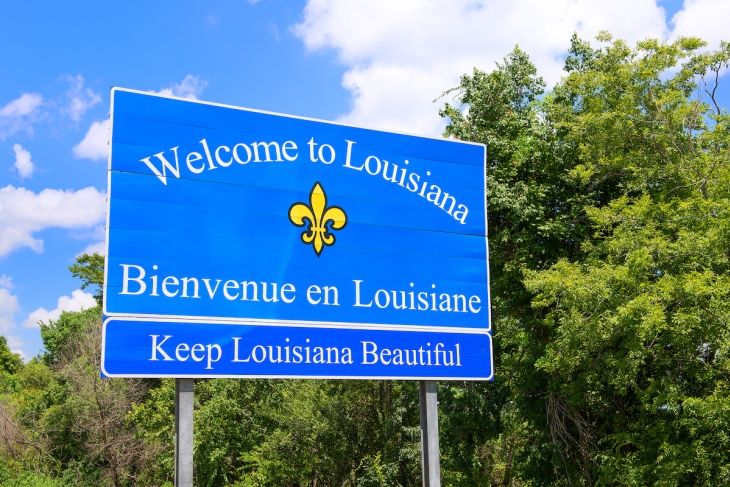The American educational system has neglected its duty to provide students with a foundational understanding of social studies for decades. Weak standards for learning were established, primary documents were ignored, and students were allowed to create their own historical truths.
As a result, a meager 12 percent of American high school seniors are now proficient in U.S. history—a statistic that is completely unacceptable. We can and must do better for our students.
In Louisiana, where I’m the State Superintendent of Education, we’re disrupting the status quo. Last year, we adopted new K–12 Social Studies Standards that tell the story of America’s greatness, along with our strides towards becoming a more perfect union.
Our new standards were built with a Freedom Framework that reflects the totality of the events that have made America exceptional. From the signing of the Declaration of Independence, to the issuance of the Emancipation Proclamation, to the ratification of the Nineteenth Amendment, this framework illuminates America’s path to freedom as one of struggle and sacrifice.
The standards revision process was emotionally sensitive and politically combustible, from beginning to end, with fierce debate on what should and should not be taught in classrooms. To navigate this volatile political climate, our team employed a few strategies I believe can help others traverse obstacles to creating stronger policies and practices for a truly American education.
Prioritize feedback
One constant was our willingness to authentically embrace engagement. The feedback of Louisiana citizens served as a steadfast reminder and example of what makes Americans so special. Too often, community, parent, and even student voices are silenced rather than elevated. We vowed to not do that. Sometimes the criticism was painful, but it was necessary.
Embrace confrontation
If you believe kids deserve a high-quality education, you must have the courage to tackle confrontational issues. It takes the proverbial thick skin. Some individuals attempted to attach labels to me and our agency regarding our work and positions. I knew our kids deserved better standards. The sooner you accept that confrontation is a part of the process, the sooner solutions can be reached. It comes with the territory—leading requires leadership.
Pursue purpose
At times, the process felt impossible. Nevertheless, we knew it was a worthy endeavor. It would result in higher-quality standards and improved outcomes for kids. We fundamentally believed it was both good and right to increase the rigor of academic standards and tell the story of our nation’s history in a coherent way.
Be nimble
We set an initial timeline for the standards revision process, which included a final delivery date to our state’s Board of Education and Legislature. I changed that date multiple times due to the global pandemic, the draft committee requesting more time, extending public comment periods, political pressures, and our team’s need to research and write. Had we been married to our initial timeline, we would have failed. It was much more important to have the right standards than meet an arbitrary timeline.
Avoid ambiguity
This was not a seamless journey. In fact, it was a winding road further complicated by societal pressures. Over the course of a year, a draft committee worked to write new standards. The committee did valuable work. However, the draft they produced received overwhelmingly negative public feedback and, ultimately, had to be overhauled by the department at the request of the State Board of Education. Many of these critiques, in my opinion, are linked to the committee’s heavy reliance on broad and vague standards, allowing for interpretations and allegations that critical race theory and action civics were deeply embedded in the standards. As simplistic as it may seem, ambiguity should be avoided. Standards should say what they mean and mean what they say.
Plurality prevails
One can believe that America remains both a shining city on a hill while also acknowledging our struggle towards a more perfect union. We were deliberate in creating standards that highlighted the beauty of the republic. This prompted claims that we were inappropriately elevating the status of our country. However, we also included—more so than ever before—standards expressing when American freedom was unevenly applied. Standards should ensure multiple perspectives are considered and capture the nuances of people, places, and papers.
Be unapologetic
For too long, students have been taught to apologize for American exceptionalism. Instead, we must teach our students the triumphs of our nation and the immense magnitude of the sacrifices made by those who came before us. We must teach our children the fragility of liberty. We must teach our students to appreciate the majesty of our country and their obligations as citizens to safeguard America’s founding principles.
Over time, the American educational system lost its way. The system prioritized embracing radical philosophies over implementing rigorous social studies standards. This educational negligence can no longer be tolerated in the United States.
Across the country, we must fully commit to teaching our children the story of American freedom and restoring excellence in history and civics classes. We must ensure students have the knowledge and skills to protect, sustain, and improve our constitutional republic for generations to come.


